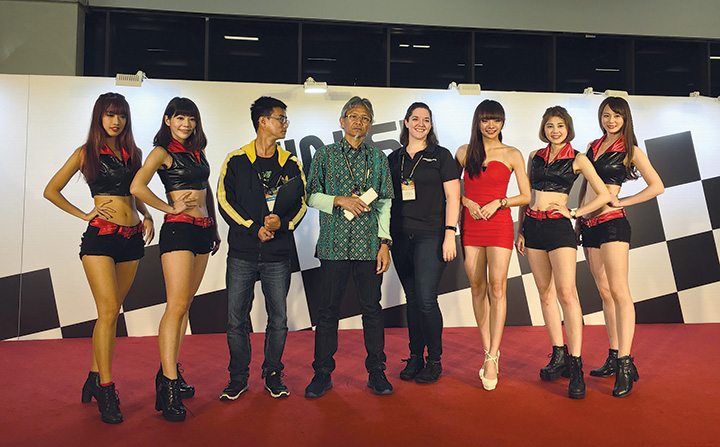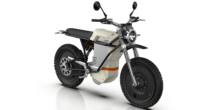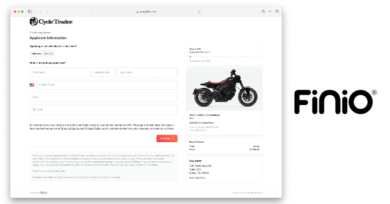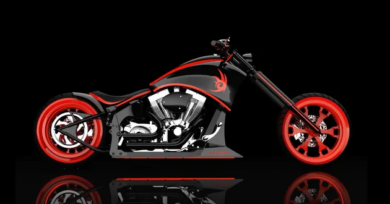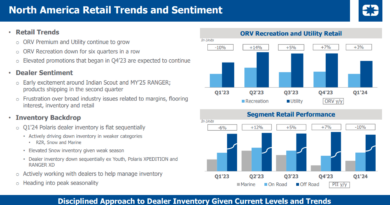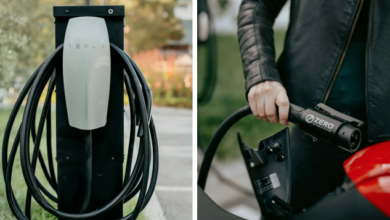Taipei show: Reputable products, global scale
Taiwan Motorcycle Show sees rise in booths, visitors
The exhibit hall at the Taiwan World Trade Center was brimming with enthusiasts and industry members alike during this year’s Taiwan International Motorcycle Show. The show, now in its 12th year, has continued to grow, with this year’s exhibitor list nearly hitting 400.
The 2017 Taiwan show, which ran April 20-23, saw exhibitors from several countries, including Taiwan, Mainland China, Hong Kong, Japan, Malaysia and Russia. While the number of international exhibitors declined from 2016, from 31 to 28, the number of domestic exhibitors increased by more than 70 booths, reaching 394 exhibitors.
“In terms of the number of overseas visitors, we had a growth of 8.3 percent,” said Mario Tsai, exhibition manager of the Exhibition Department of Taiwan External Trade Development Council (TAITRA). “With BMW and KYMCO exhibiting, it created a rise in interest for the show.”
The Motorcycle Taiwan show was held in conjunction with three other auto industry shows in the Taiwan World Trade Center, including an electric vehicle section. Overall, attendance grew from just over 35,000 in 2016 to 38,187 visitors in 2017. By the numbers, Japan led the international visitor majority with 1,657 visitors in attendance, while Mainland China (1,218) and the United States (541) rounded out the top three, combined for all four shows.
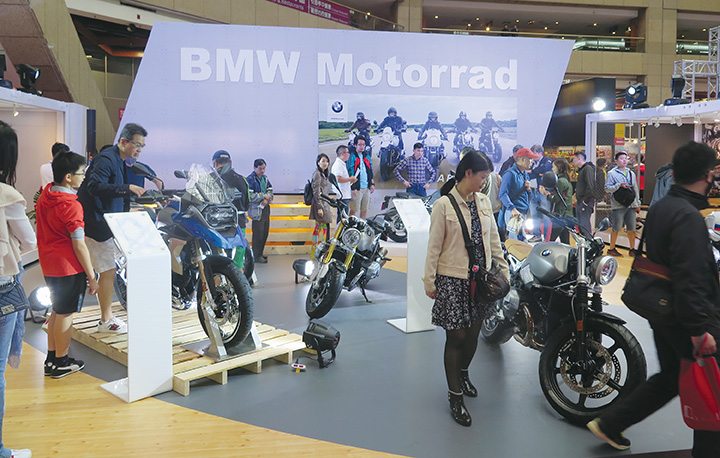
The increase in attendance and exhibitors comes as welcomed news to TAITRA, the Taiwanese trade company that organizes the annual show. After the financial crisis of 2008, the show faced a difficult time getting back to its pre-crisis exhibitor and visitor numbers.
Tsai said that the exhibition space also increased by 20 percent in 2017. “To participate in trade shows overseas, such as in Europe or the United States, the cost is very high. We have established this platform. We provide an economical booth rate for all the exhibitors, not just for those from Taiwan, but all the exhibitors overseas as well,” Tsai added. “The show is one way that we help the Taiwanese companies to promote their products to the overseas countries.”
Japan, Mainland China, the United States and Hong Kong make up the major export market of Taiwanese-made motorcycle parts, which puts the exhibiting companies in a good position to raise brand awareness, as those countries also were the countries of origin for most of the show’s visitors.
“In 2015, we visited many Taiwanese companies to discuss with them on how to promote these exhibitions and how to establish the image of the Taiwanese product,” said Tsai. “We chose some features to describe the Taiwanese show: custom-made, quality and prestigious visitors.”
Products manufactured in Taiwan continue to have a strong reputation on a global scale, Tsai explained, and those quality products are a large draw for international visitors from countries like Japan and Germany. “There’s a reason that many Japanese buyers buy products from Taiwan. We offer a good price and quality,” he added.
Many exhibitors approached the Taiwan show to not only promote their products on both a local and international level, but as an outlet to seek business opportunities and to support the domestic business in Taiwan.
ADIVA
ADIVA, the Taiwanese company behind a scooter with a convertible roof, returned to the show once again as a way to promote its brand domestically. “We want to increase our domestic market, and it’s also to increase awareness,” said ADIVA’s Eugene Chong, who manages the company’s export department. “It’s a way to increase exposure as well as to engage participants. A lot of motorcycle dealers will come, and they will look for interesting products to sell, and foreigners also attend and may find it suitable for their market.”
While ADIVA has had a manufacturing facility in Taiwan since 2008, it only began selling domestically in 2016. Chong said the main aim for exhibiting is to first generate awareness and increase exposure of ADIVA models and to look for business opportunities. The company has an international patent for its retractable roof and its main market is Europe.
“At ADIVA we foresee the future, and because of the pollution and congestion in the major cities, we decided to launch a motorcycle that combines the function of a vehicle and a car. We believe that this urban vehicle will actually replace motorcycles in the world as overpopulation continues in major cities,” said Chong.
ADIVA exhibited three models during the Taiwan Show. The AD3 is a three-wheeled scooter available in a 300cc and 400cc version. The 300cc engine in the AD3 is manufactured by KYMCO, while the 400cc is a Peugeot engine. Chong said the company plans to develop its own engine in the future, but would like to solidify its position in the market first.
With the increase in consumers modifying vehicles for work and outdoor activities, Chong said ADIVA sees this as a chance to grow its presence in different markets with its unique design and capabilities. The company plans to build a more solid foundation outside of its European market before launching business in the U.S. ADIVA has plans to enter the Latin and Central American markets in the next year and hopes to gain more perspective from that venture.
Koso
Tong Yah Electronic Technology Co., otherwise known as Koso, agrees that the Taiwan show helps its business. “A lot of our customers will come visit the show. This show helps our domestic market because we already have a lot of authorized dealers in different market areas, so if a customer wants to purchase a product, we can refer them to one of our local authorized dealers,” said Juan Hou, sales department at Koso. “The main reason for us to attend these shows is to represent our product in front of the whole world.”
Koso has developed and manufactured parts and accessories for motorcycles and scooters for more than 20 years. It provides a wide range of product lines, including electronic meters, mirrors, lamps, wheels, grips, weight rollers, handle levers, carburetors, accessories and light gauges.
Koso divided its booth into two sections, one for decoration and tuning parts, and the other side for its electronic offerings, such as LED lights, dashboard speedometers and gauges. “Our main market is the aftermarket, but recently we are trying to integrate into the OEM, due to the higher sales volume, and it’s more consistent,” Hou said.
With parts manufactured at its Taiwan factory, Koso’s target market is Europe, which makes up 40 percent of its sales. Approximately 10 percent of Koso’s sales are from the U.S., but Hou said regulations on products in the U.S. market have posed a challenge to the company. For example, the company’s indicator lights need to be made bigger in the United States to comply with DOT standards, but this size is not particularly favorable in the European market. “We want to present our customers a fully prepared and legal homologated product, so they can safely install the product on their bikes and ride on roads safely without any problems,” he added.
However, Hou said the brand hopes to continue sales in the U.S. market and is beginning to work on developing products for Harley-Davidson models. “People who own Harleys like to invest in them,” he said. “They want their bike to look unique and different than all the rest.”
Koso will focus on its digital products in the U.S. market, since there is a lot of competition with China when it comes to decorative or customized parts. “Our decoration parts, although unique and good quality, the price is still higher than China. The competition is still there, so instead of having a price competition, we’ve chosen to produce something that others cannot simply mimic,” said Hou.
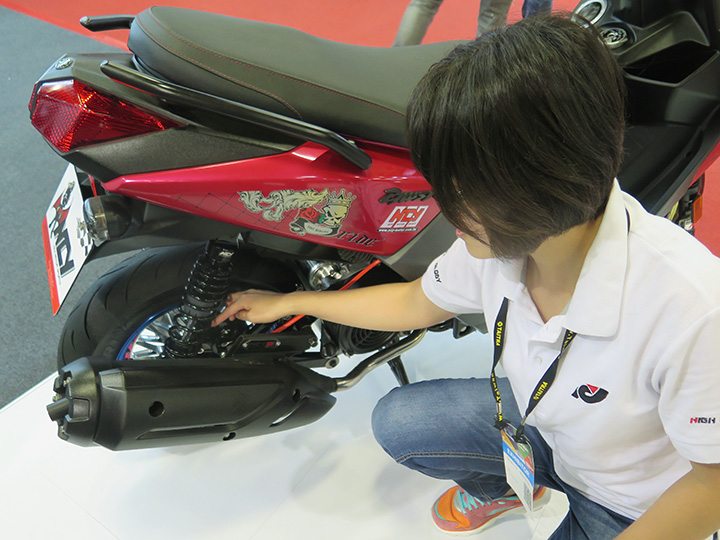
KYMCO
New exhibitors like KYMCO helped draw in a larger crowd of local Taiwan participants as it released its Noodoe interactive scooter app. Fresh off of its January release at the Consumer Electronics Show (CES) in Las Vegas, the Noodoe app has continued to grow in popularity. During the release in Taiwan, KYMCO’s booth was packed with interested attendants, and several app demos were offered.
KYMCO CEO Ke Jun-bin said during the opening presentation of the 2017 Taiwan Motorcycle Show that he believes the trade show enhances the sales prospects for KYMCO motorcycles. In 2016, KYMCO’s motorcycle and scooter sales made up 36.9 percent of the Taiwan market, and the company hopes to hit 40 percent of the market in 2017.
“We exhibit at this show, which is mainly B2B, to support the domestic market,” said Leon Wu, vice president of KYMCO’s Overseas Development Center. “This is an opportunity to educate others on our new products like Noodoe and to support the Taiwanese government programs like TAITRA.”
While the U.S. still remains a motorcycle-dominated market, Wu is hopeful that powerful scooters like the new KYMCO AK 550 will gain interest. In the next three years, Wu explained that the company plans to equip all of its models with Noodoe technology. The first deliveries of Noodoe-equipped scooters began in May in Taiwan and Europe. In the U.S., Noodoe will be available in 2018 on the Like 150i scooter, and the AK 550 is estimated for early 2019.
NCY
Chian-Yie Industrial Co., Ltd., or the NCY Motor Sports brand, also had a large presence at the Taiwan show. The scooter parts company recently launched a High Performance (HP) brand in 2016, which it heavily promoted during the show. Rather than design universal items, NCY has made the choice to research and develop products for targeted models in order to make the products “more integrated, attractive and value-added.”
NCY showcased a variety of scooter parts, including side mirrors, genuine leather grips, high-end forged wheels, brake systems, performance front and rear shock absorbers, around-body steel tube bumpers, cargo boxes, mufflers and engine performance upgrading systems. Its brake systems and forged aluminum rims are among the most popular products for the brand. NCY’s dedication to quality checks ensures that each product undergoes quality control before shipping.
NCY’s research & development, testing and assembly take place in its factory in Tainan, just south of Taipei. While some companies need longer lead time for molds and machinery, NCY has the capability to streamline the process with its own equipment and supplier.
For 2017, NCY is seeking an exclusive distributor in Europe that it can use for sales of NCY’s Vespa parts. NCY exports approximately 95 percent of its output to major markets, including Japan, the U.S. and Southeast Asia. NCY is exclusively distributed in the U.S. by Scooterworks USA out of Chicago.

TGB
Taiwan Golden Bee Co. Ltd. (TGB) also views the Taiwan Motorcycle Show as a chance to promote future business. “We think this kind of motor show is a platform to get the supplier and the buyer together where they can share opinions and pursue business opportunities. We always participate and do our best to support it,” said George Lin, president of TGB.
The ATV and side-by-side manufacturer has continued to grow in popularity after more than 35 years of business. TGB’s Blade 1000 V-Twin ATV, which is currently the most powerful of its kind in Taiwan, received quite a bit of attention during the 2017 show. With a power output of up to 83 hp, TGB is one of only a handful of companies that have the capability to develop a 1000cc ATV with more than 80 hp in the worldwide market.
Part of TGB’s dedication to the quality of its product comes from its extensive testing before a model is released. “In the powersports industry, North America holds about 70 percent of the world market. We believe that will keep growing. Many people want our engine in their side-by-side, and our engine’s performance is similar to Polaris and Can-Am,” Lin said.
TGB is currently in the process of finding an exclusive U.S. distributor for its products and promises to provide the same dedication to its U.S. customers as it does in the rest of the world.
E-GIN
Another company with a long history in Taiwan is Yih Jing Traffic Industrial Co. Ltd. (E-GIN), which manufacturers motorcycle plastic spare parts, ATV plastic parts and machine injection products. The company supplies high quality replacement and performance body parts that fit a majority of OEMs from around the world.
“We always want to promote our products, but we also want to support our country,” said Ting Yu Yeh of E-GIN’s sales department. “We have been at this show since the beginning, and it’s the second-biggest motorcycle show in Asia. It is an investment to promote our products and exhibit.”
Yeh said that the company uses premium quality plastic materials in a state-of-the-art injection system that ensures precise installation, durability and the longevity of its products. Each mold takes about three months to develop, so every year E-GIN adds full sets for two or three new models, which are determined by the most popular models on the market.
E-GIN also has the ability to customize the color of each part, according to what the consumer wants. “We will offer more colors than traditional OEMs. We have OEM colors too, but we also have the technology to develop the molds, so if customers have an idea they want to develop their own products, then we can customize to meet their requests,” said Yeh.
While the company does not yet have a U.S. distributor, Yeh said she plans to attend the 2017 American International Motorcycle Expo (AIMExpo) in Columbus, Ohio, to learn more about the U.S. market. Yih Jing Traffic Industrial hopes to enter the U.S. market with a new line of motocross parts, aiming mainly for the enthusiasts who would like to customize the bikes.
“If you want to look for suppliers, especially a supplier that can customize your design and your products, here is the best place,” said Tsai, of the Taiwan External Trade Development Council. “Although our exhibition is small, you will meet many suppliers who will offer you products with great quality at a reasonable, competitive price.”
